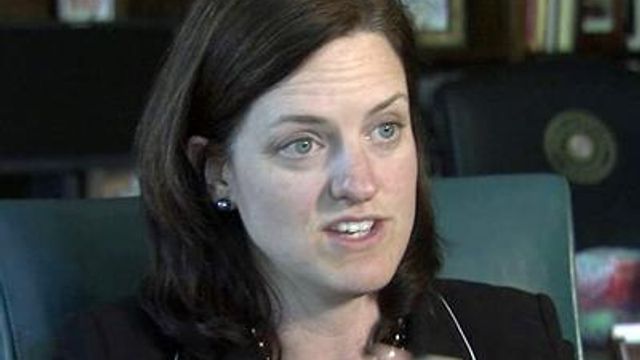Outside managers mean higher fees for N.C.'s pension fund
A WRAL Investigation shows the state shifting more and more fund management to outside firms, which charge fees that cost the state hundreds of millions of dollars.
Posted — UpdatedState Treasurer Janet Cowell manages the $67 billion retirement system, but a WRAL Investigation shows the state shifting more and more fund management to outside firms, which charge fees that cost the state hundreds of millions of dollars.
The WRAL Investigates team did the math on 10 years worth of retirement system public records. Like many other state pensions, North Carolina ramped up its investment portfolio with outside managers. In a volatile decade, the management fees soared, but the fund didn't.
Less than 10 years ago, it was a different era at the state's pension fund. Longtime treasurer Harlan Boyles was stepping down, and Richard Moore would soon take over.
In June 2000, the state paid $40.8 million in fees for outside firms to manage a portion of the $58.9 billion state retirement fund.
When Moore took office, he sought to diversify what many considered a highly conservative fund. He increased the state's investments in active stocks, international stocks, so-called hedge funds and real estate.
Treasurer Janet Cowell inherited and built on that strategy. By December 2009, records show outside money management fees grew to $266 million, and the pension fund total stood at $67 billion.
Cowell says it’s too simplistic to assume that the value of the pension fund increase is in direct proportion to management fees.
From 2000 to the end of last year, private firm management fees jumped 552 percent. During the turbulent decade, which includes the historic downturn in 2008, the overall pension fund grew by 13.75 percent. The bottom line is that managers get paid whether investments go up or not.
“Now, you've got a whole decade worth of equity returns lost in a single year, but the fees are going to be the same,” Cowell said.
Ardis Watkins works for the State Employees Association, which represents thousands of retirees who count on the pension fund.
“We hear the fat cats that run investment management firms get even more money out of the system. We have a problem with that,” Watkins said. “I absolutely question why we would make decisions that give more money to more investment managers when we're not getting a return on it.”
Cowell says outside expertise is needed because investing is far more sophisticated than it was even a decade ago. Plus, comparable state pensions have also increased their reliance on private managers, in many cases paying even more than North Carolina in fees.
A year-long independent review of the pension found the state's management costs are "reasonable."
When asked if she could do that in-house, Cowell said “we do not have the salaries that would support that sort of sophisticated decision-making.”
Raleigh financial planner Gerald Townsend says the treasurer deserves time to determine if those fees pay off.
“It's not surprising fees have gone up given the asset allocation,” he said. “It's a controlled decision limited in percentages and is a strategic, long-term decision that we just have to hope the state has consulted enough people that they feel like ultimately they'll be vindicated.”
Long-term, Cowell said she counts on that vindication.
“We'll be looking for if we're paying higher fees for investments they better be performing and giving us a higher rate of return. Otherwise, it's a failed experiment,” she said.
Cowell says that experiment is on a seven- to 10-year cycle, and performance and fees will be weighed over that time frame.
While much of the pension fund is managed outside, fixed-income investments are handled in the treasurer's office, which accounts for about 40 percent of the pension fund.
Related Topics
• Credits
Copyright 2024 by Capitol Broadcasting Company. All rights reserved. This material may not be published, broadcast, rewritten or redistributed.






